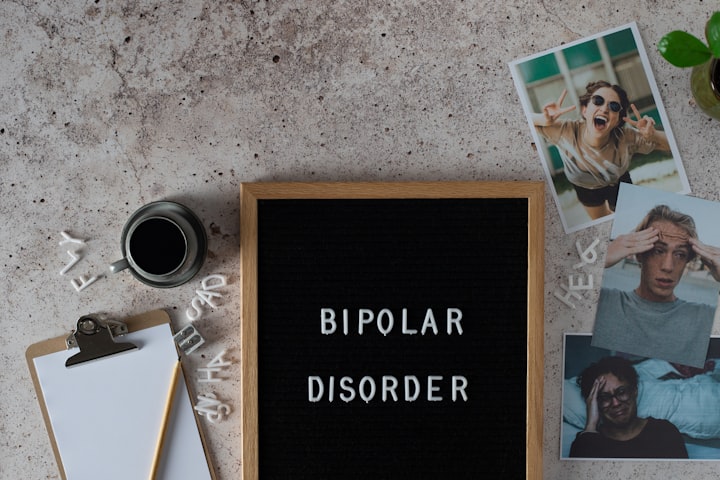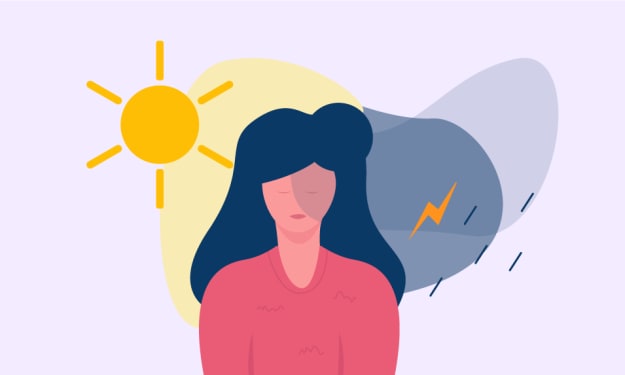Mood Disorders: Causes, Symptoms, and Treatment
Mood Disorders: Causes, Symptoms, and Treatment

Mood disorders, also known as affective disorders, are a group of mental health conditions that affect an individual's emotional state. These conditions are characterized by changes in mood that are extreme, long-lasting, and interfere with daily activities. The two primary types of mood disorders are depression and bipolar disorder. Although the exact causes of mood disorders are not entirely understood, researchers have identified several potential factors that contribute to the development of these conditions.
Genetics: Family history is a significant risk factor for mood disorders. Studies have shown that individuals who have a first-degree relative with depression or bipolar disorder are more likely to develop these conditions themselves. Genetic factors can influence the development of mood disorders by altering the brain's chemistry or affecting the way an individual responds to stress.
Brain chemistry: Chemical imbalances in the brain can also contribute to the development of mood disorders. Neurotransmitters, such as serotonin, dopamine, and norepinephrine, are responsible for regulating mood. When these chemicals are imbalanced, it can lead to depression or mania.
Environmental factors: Trauma, abuse, neglect, and other adverse life events can also contribute to the development of mood disorders. Chronic stress can trigger changes in the brain that lead to mood disorders. Environmental factors can also interact with genetic factors to increase the risk of developing these conditions.
Medical conditions: Certain medical conditions can also contribute to the development of mood disorders. For example, individuals with thyroid disorders, diabetes, and heart disease are more likely to experience depression. Chronic pain conditions, such as fibromyalgia, can also contribute to the development of mood disorders.
Symptoms of Mood Disorders:
The symptoms of mood disorders can vary depending on the specific condition and the individual's experience. However, some common symptoms of depression and bipolar disorder include:
Depression:
Feelings of sadness, emptiness, or hopelessness
Loss of interest in activities once enjoyed
Changes in appetite and weight
Sleep disturbances, such as insomnia or excessive sleepiness
Fatigue or loss of energy
Difficulty concentrating, making decisions, or remembering things
Feelings of worthlessness or guilt
Thoughts of death or suicide
Bipolar Disorder:
Periods of mania or hypomania, which are characterized by elevated or irritable mood, increased energy, and impulsivity
Periods of depression, which may include the symptoms listed above
Rapid cycling, which involves frequent shifts between manic and depressive episodes
Psychotic symptoms, such as hallucinations or delusions, may occur during severe manic or depressive episodes
Treatment of Mood Disorders:
The treatment of mood disorders typically involves a combination of medication, psychotherapy, and lifestyle changes. The specific treatment plan will depend on the individual's diagnosis, symptoms, and other factors.
Medication: Antidepressants, mood stabilizers, and antipsychotic medications may be used to treat mood disorders. These medications can help to balance brain chemistry and reduce symptoms of depression or mania. However, it may take several weeks or months for the medication to take effect, and some individuals may need to try several different medications before finding the right one.
Psychotherapy: Psychotherapy, also known as talk therapy, can help individuals with mood disorders to manage their symptoms and improve their overall mental health. Cognitive-behavioral therapy (CBT) is a common form of psychotherapy used to treat mood disorders. This type of therapy focuses on identifying negative thought patterns and developing strategies to change them. Other types of therapy, such as interpersonal therapy and psychodynamic therapy, may also be used to treat mood disorders.
Lifestyle changes: Lifestyle changes can also be beneficial in the treatment of mood disorders. Regular exercise, a healthy diet, and getting enough sleep are all important factors in maintaining good mental health. Individuals with mood disorders may also benefit from stress-management techniques, such as meditation, deep breathing exercises, or yoga. Avoiding alcohol and drugs is also crucial, as these substances can worsen symptoms and interfere with medication.
In addition to these traditional treatments, some individuals with mood disorders may benefit from alternative therapies such as acupuncture, massage, or herbal supplements. However, it is important to speak with a healthcare provider before trying any alternative therapy, as some of these treatments may interact with medication or worsen symptoms.





Comments
There are no comments for this story
Be the first to respond and start the conversation.